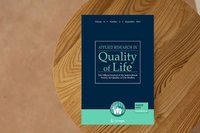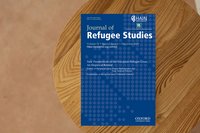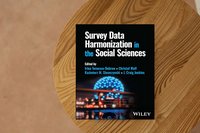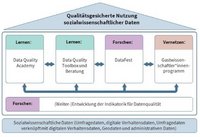gesis report 12/23
Liebe Leser*innen, wir wünschen Ihnen ein friedliches Weihnachtsfest, besinnliche Feiertage und einen guten Rutsch ins Jahr 2024! Bleiben Sie gesund! Ihre Redaktion |  | Dear readers, we wish you a peaceful Christmas, reflective holidays and a happy new year 2024! Stay healthy! Your editorial team |
GESIS Spring Seminar 2024 – Still places available!In 2024, all courses will deal with "Recent Developments in Longitudinal Data Analysis" in the social sciences and beyond. Extensive hands-on exercises and tutorials complement lectures in each course. The Spring Seminar will take place onsite at GESIS Cologne, Germany, from 26 February to 15 March 2024. GESIS Spring Seminar 2024 Program: Week 1 (26 Feb - 01 Mar) Week 2 (04 - 08 Mar) Week 3 (11 - 15 Mar) Courses must be booked separately – whether you wish to attend one, two, or all three. There is no registration deadline, but places are limited and allocated on a first-come, first-served basis. Thanks to our cooperation with the Cologne Graduate School in Management, Economics, and Social Sciences at the University of Cologne, enrolled doctoral students can obtain three ECTS credit points per one-week course. For detailed information on the Spring Seminar 2024, please visit www.gesis.org/springseminar. Season 6 of Meet the Experts begins in January 2024The new season 6 of "Meet the Experts" entitled "Knowledge technologies for the Social Science: Access to Social Science Data and Services" covers topics such as the information-seeking behavior and data needs of social scientists, search infrastructures and knowledge graphs, large language models and and novel data sources mined from the Web, and automatic extraction of scientific information from scholarly texts.
Further information on program and registration GESIS Workshops 2024 – Tailored to Your NeedsReady to take your expertise to the next level in 2024? 🚀 Gear up for the journey as we introduce our latest lineup of workshops, featuring cutting-edge sessions in data analysis and more:
Participate in the workshops to ... 🔍 Deepen your understanding of quantitative research methods in the social sciences; 🔬 Implement cutting-edge data analysis techniques into your research under the supervision of esteemed professionals; 🗣️ Participate in dynamic discussions with esteemed lecturers and peers who share your interests. For the complete workshop program, visit the workshop website. | GESIS Training Workshops in Macrch 202406/03-08/03 13/03-15/03 20/03-22/03 21/03-22/03
Check out our other workshops! |
 | Neues Projekt Infra4NextGen beginnt nächstes JahrEin neues, von der Europäischen Kommission mit 9,75 Millionen Euro finanziertes Projekt wird die Ergebnisse der wichtigsten sozialwissenschaftlichen Forschungsinfrastrukturen zusammenführen, um das Konjunkturprogramm NextGenerationEU und die Jugendpolitik der Europäischen Union zu unterstützen. New Horizon Europe project to begin next yearA new €9.75m project funded by the European Commission will bring together outputs from key social science research infrastructures to inform the NextGenerationEU recovery plan and European Union youth policy. Infra4NextGen – a four-year project set to begin on 1 March 2024 – will re-purpose and customise existing research services to support the five themes of the NextGenerationEU programme.
|
 | Studie zur Lebenszufriedenheit im zweiten COVID-19-Pandemie LockdownWährend der COVID-19 Pandemie wurde versucht, die Verbreitung des Virus mit Hilfe politischer Maßnahmen zu verlangsamen. In Deutschland haben sich diese Maßnahmen in ihrer Stärke und Dauer regional unterschieden. Die Studie von Lisa Schmid und Kolleg*innen untersucht, ob die Lebenszufriedenheit während der Pandemie von diesen Maßnahmen beeinfluss wurde. Study on life satisfaction in the second COVID-19 pandemic lockdownDuring the COVID-19 pandemic, attempts were made to slow down the spread of the virus with the help of political measures. In Germany, the strength and duration of these measures varied from region to region. The study by Lisa Schmid and colleagues investigates whether life satisfaction was influenced by these measures during the pandemic.
|
 | Neuer Blog-Beitrag erschienen: Winters, May & Czymara schreiben über Ausgrenzungsrhetorik von politischen Parteien und deren KonsequenzenDer Aufstieg rechtspopulistischer Parteien in Europa hat dazu geführt, dass einige etablierte politische Parteien versuchen, die Unterstützung der Wähler*innen zurückzugewinnen, indem sie rechtsextreme, pro-nationalistische und einwanderungsfeindliche Positionen einnehmen. Neue Forschungsergebnisse aus Deutschland und Israel deuten jedoch darauf hin, dass diese Strategie in erster Linie den rechtsextremen Parteien zugute kommt und nicht, wie erhofft, den Parteien der politischen Mitte. DOI: 10.34879/gesisblog.2023.73 New blog post: Winters, May & Czymara write about exclusionary rhetoric use by political parties and the consequencesThe rise of right-wing populist parties in Europe led some mainstream political parties to attempt to regain the support of voters by adopting far-right pro-nationalist and anti-immigrant stances. However, new research out of Germany and Israel suggests this strategy primarily benefits far-right parties and not the political mainstream parties, as they had hoped. DOI: 10.34879/gesisblog.2023.73
|
 | Jetzt neu: Pötzschke et al.: Self-selection of Ukrainian refugees and displaced persons in EuropeDie Literatur zur Selbstselektion von Migrant*innen konzentriert sich auf Arbeitsmigrant*innen, während über Flüchtlinge und Binnenvertriebene wenig bekannt ist. Dieser Beitrag leistet einen Beitrag zu dieser spärlichen Literatur, indem er (1) eine breite Palette von Faktoren untersucht, die die Selbstselektion bestimmen könnten, (2) die Selbstselektionsprofile von Flüchtlingen und Binnenvertriebenen gegenüberstellt und (3) die Selbstselektionsprofile von Flüchtlingen länderübergreifend vergleicht. Out now: Pötzschke et al.: Self-selection of Ukrainian refugees and displaced persons in EuropeThe literature on migrants’ self-selection is focused on labour migrants, while little is known about refugees and internally displaced persons (IDPs). The authors contribute to this scant literature, by (1) examining a broad set of factors that could determine self-selection, (2) contrasting self-selection profiles of refugees and IDPs, and (3) comparing self-selection profiles of refugees across countries.
|
 | Neu erschienen: Christof Wolf et al. (Hg.): Survey Data Harmonization in the Social SciencesEin umfassender und prägnanter Überblick über den praktischen Nutzen der Daten-Harmonisierung und ihre Auswirkungen auf Datenqualität In "Survey Data Harmonization in the Social Sciences (Harmonisierung von Umfragedaten in den Sozialwissenschaften)" liefert ein Team angesehener sozialwissenschaftlicher Forschender eine umfassende Sammlung von Methoden der Ex-ante- und Ex-post-Harmonisierung im Kontext spezifischer Längsschnitt- und länderübergreifender Umfrageprojekte. Out now: Christof Wolf et al. (Hg.): Survey Data Harmonization in the Social SciencesAn expansive and incisive overview of the practical uses of harmonization and its implications for data quality and costs In Survey Data Harmonization in the Social Sciences, a team of distinguished social science researchers delivers a comprehensive collection of ex-ante and ex-post harmonization methodologies in the context of specific longitudinal and cross-national survey projects.
|
 | KODAQS: Aufbau eines Kompetenzzentrums für Datenqualität in den SozialwissenschaftenMit dem Aufbau eines Kompetenzzentrums für Datenqualität in den Sozialwissenschaften (KODAQS) will GESIS in Kooperation mit der Ludwig-Maximilians-Universität München (LMU) und der Universität Mannheim neue Maßstäbe für die Vermittlung von Datenqualitätskompetenzen in den Sozialwissenschaften setzen. Dabei zeichnet sich KODAQS durch seinen ganzheitlichen Ansatz aus, setzt auf digitale Innovation und schafft damit eine neue Kultur für die Vermittlung von Datenqualitätskompetenzen in den Sozialwissenschaften. KODAQS: Enabling a competence center for data quality in the social sciencesEnabling a competence center for data quality in the social sciences (KODAQS), GESIS, in cooperation with the Ludwig-Maximilians-University Munich (LMU) and the University of Mannheim, aims to set new standards for teaching data quality skills in the social sciences. KODAQS is characterized by its holistic approach, focuses on digital innovation and thus creates a new culture for teaching data quality skills in the social sciences.
|
 | E-Mail wird nicht richtig dargestellt? Jetzt im Browser anschauen! Eine Abbestellung des Newsletters "gesis report" ist jederzeit über diesen Link möglich: https://lists.gesis.org/mailman/listinfo/gesis-newsletter Sie können uns auch gerne eine E-Mail senden: gesisreport@gesis.orgDie Datenschutzhinweise von GESIS können Sie über folgenden Link einsehen: https://www.gesis.org/institut/datenschutz/ Display problems? No images? Open the newsletter in your browser! You can unsubscribe from the newsletter "gesis report" at any time via this link: https://lists.gesis.org/mailman/listinfo/gesis-newsletter You can also send us an e-mail: gesisreport@gesis.org The GESIS data protection information can be viewed via the following link: https://www.gesis.org/institut/datenschutz/ |

